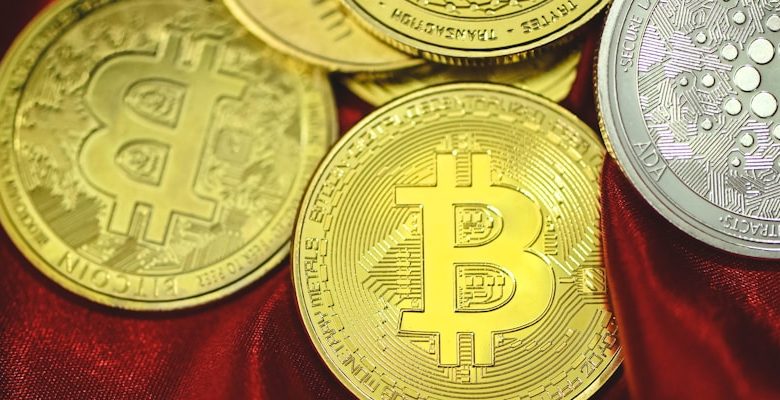The Role of Blockchain in the Metaverse Economy

- The evolution of blockchain technology
- Understanding the metaverse economy
- Key players in the metaverse ecosystem
- Impact of blockchain on virtual asset ownership
- The future of decentralized finance in the metaverse
- Challenges and opportunities for blockchain integration in the metaverse
The evolution of blockchain technology
Blockchain technology has undergone a significant evolution since its inception. Initially known as the underlying technology for cryptocurrencies like Bitcoin, blockchain has now expanded its applications beyond digital currencies. The concept of blockchain involves creating a decentralized and secure digital ledger that records transactions across a distributed network of computers. This technology has revolutionized various industries by providing transparency, security, and immutability to data transactions.
One of the key developments in blockchain technology is the introduction of smart contracts. Smart contracts are self-executing contracts with the terms of the agreement directly written into code. These contracts automatically execute and enforce themselves when predefined conditions are met, eliminating the need for intermediaries in transactions. Smart contracts have enabled the automation of various processes, ranging from financial transactions to supply chain management.
Another significant advancement in blockchain technology is the emergence of decentralized finance (DeFi) platforms. DeFi platforms utilize blockchain technology to offer traditional financial services such as lending, borrowing, and trading without the need for traditional financial intermediaries. These platforms enable users to access financial services in a more efficient, transparent, and secure manner compared to traditional financial systems.
Moreover, the development of non-fungible tokens (NFTs) has brought blockchain technology to the forefront of the digital art and collectibles market. NFTs are unique digital assets that represent ownership of a specific item or piece of content. They are stored on a blockchain, ensuring their authenticity and scarcity. The popularity of NFTs has grown exponentially, with artists, musicians, and creators leveraging this technology to tokenize and monetize their work.
Overall, the evolution of blockchain technology has paved the way for innovative applications across various industries, including finance, art, gaming, and more. As blockchain continues to evolve, its impact on the metaverse economy is expected to expand, creating new opportunities for decentralized and secure transactions in virtual worlds.
Understanding the metaverse economy
The metaverse economy is a complex and evolving system that encompasses various virtual assets, digital currencies, and decentralized applications. Blockchain technology plays a crucial role in enabling transactions, establishing trust, and ensuring transparency within the metaverse economy.
One of the key aspects of the metaverse economy is the concept of digital ownership. Through blockchain technology, users can securely own, trade, and transfer virtual assets such as digital art, collectibles, and virtual real estate. This has created new opportunities for creators, investors, and users to participate in the emerging digital economy.
Blockchain technology also facilitates the creation and management of decentralized autonomous organizations (DAOs) within the metaverse economy. These DAOs operate through smart contracts, which are self-executing contracts with the terms of the agreement directly written into code. This enables transparent and automated governance processes within virtual communities.
Moreover, blockchain technology enables the seamless integration of digital currencies within the metaverse economy. Cryptocurrencies such as Bitcoin and Ethereum are widely accepted as a means of payment for virtual goods and services. This has led to the emergence of new economic models and revenue streams within virtual worlds.
Overall, the metaverse economy is a dynamic and fast-growing ecosystem that is reshaping the way we interact, transact, and create value in virtual environments. Blockchain technology is at the forefront of this transformation, providing the necessary infrastructure for a decentralized and secure digital economy to thrive in the metaverse.
Key players in the metaverse ecosystem
The metaverse ecosystem is composed of several key players that contribute to its growth and development. These players play a crucial role in shaping the future of the metaverse economy through their various contributions and innovations. Some of the key players in the metaverse ecosystem include:
1. **Blockchain Developers**: Blockchain developers are at the forefront of building the infrastructure that powers the metaverse. They create decentralized applications (dApps) that enable seamless interactions within the virtual world, ensuring security and transparency.
2. **NFT Creators**: Non-fungible token (NFT) creators are instrumental in providing unique digital assets that can be bought, sold, and traded within the metaverse. These digital assets range from virtual real estate to digital art, allowing users to truly own and monetize their virtual possessions.
3. **Metaverse Platforms**: Metaverse platforms serve as the gateway for users to access and explore the virtual world. These platforms provide the necessary tools and services for users to create, socialize, and transact within the metaverse, fostering a vibrant and dynamic ecosystem.
4. **Virtual Economies**: Virtual economies are the lifeblood of the metaverse, driving economic activity and growth within the virtual world. These economies are powered by blockchain technology, enabling secure and efficient transactions between users, developers, and content creators.
5. **Cryptocurrency Exchanges**: Cryptocurrency exchanges play a vital role in facilitating the exchange of digital assets within the metaverse. By providing liquidity and trading pairs for various cryptocurrencies and NFTs, exchanges enable users to participate in the metaverse economy seamlessly.
Overall, these key players work together to create a thriving metaverse ecosystem that offers endless possibilities for users to explore, create, and interact within the virtual world. Their contributions are essential in shaping the future of the metaverse economy and driving innovation in the digital space.
Impact of blockchain on virtual asset ownership
Blockchain technology has revolutionized the concept of virtual asset ownership in the metaverse economy. By utilizing blockchain, individuals can securely own and transfer virtual assets without the need for intermediaries. This decentralized system ensures transparency and immutability, providing users with full control over their digital possessions.
One of the key impacts of blockchain on virtual asset ownership is the concept of non-fungible tokens (NFTs). NFTs are unique digital assets that are stored on a blockchain, certifying their authenticity and ownership. This innovation has enabled creators to monetize their digital creations, such as art, music, and virtual real estate, by tokenizing them as NFTs.
Moreover, blockchain technology eliminates the risk of counterfeit virtual assets by providing a transparent and tamper-proof ledger of ownership. Through smart contracts, users can establish rules for the transfer and use of their virtual assets, ensuring that ownership rights are upheld in the digital realm.
The future of decentralized finance in the metaverse
The future of decentralized finance in the metaverse is filled with exciting possibilities. As blockchain technology continues to revolutionize the way we interact and transact in virtual worlds, decentralized finance (DeFi) is poised to play a key role in shaping the economy of the metaverse. By leveraging blockchain technology, DeFi platforms offer users the ability to access financial services such as lending, borrowing, and trading without the need for traditional intermediaries.
One of the main advantages of DeFi in the metaverse is its ability to provide a high level of transparency and security. Smart contracts, which are self-executing contracts with the terms of the agreement directly written into code, ensure that transactions are secure and irreversible. This can help build trust among users in the metaverse economy, as they can be confident that their assets are protected.
Furthermore, DeFi in the metaverse can enable greater financial inclusion by providing access to financial services for individuals who may not have had access to traditional banking services. This can help empower users in the metaverse to participate more fully in the economy and take control of their financial futures.
Overall, the future of decentralized finance in the metaverse looks promising. As blockchain technology continues to evolve and DeFi platforms become more sophisticated, we can expect to see a flourishing economy in the metaverse driven by decentralized financial services. It will be exciting to see how this innovative technology continues to shape the way we interact and transact in virtual worlds.
Challenges and opportunities for blockchain integration in the metaverse
One of the key challenges facing the integration of blockchain technology in the metaverse is the scalability issue. As the metaverse grows in popularity and usage, the current blockchain networks may struggle to handle the increasing volume of transactions. This bottleneck could potentially hinder the seamless operation of virtual economies within the metaverse.
Another challenge is the issue of interoperability between different blockchain networks. In order for the metaverse to truly flourish, different platforms and virtual worlds need to be able to communicate and transact with each other seamlessly. This requires a high level of standardization and cooperation among blockchain developers and platform operators.
Despite these challenges, there are also numerous opportunities for blockchain integration in the metaverse. One such opportunity is the ability to create a secure and transparent virtual economy. By using blockchain technology, transactions within the metaverse can be securely recorded and verified, reducing the risk of fraud and ensuring the integrity of virtual assets.
Furthermore, blockchain integration can also enable new forms of ownership and monetization within the metaverse. Through the use of non-fungible tokens (NFTs) and smart contracts, users can have true ownership of their virtual assets and creations. This opens up new possibilities for creators to monetize their work and for users to invest in digital assets within the metaverse.
Overall, the challenges and opportunities for blockchain integration in the metaverse are intertwined. Overcoming the scalability and interoperability challenges will be crucial in unlocking the full potential of blockchain technology within the virtual world. By addressing these challenges and leveraging the opportunities presented, the metaverse economy can truly thrive and revolutionize the way we interact and transact in virtual spaces.



